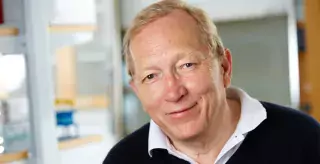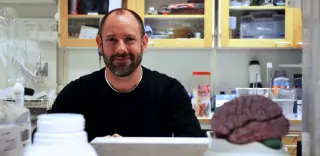News archive
On this page you can search for older news. Choose a topic, type of news or enter your own keyword to filter out news.
View compact
Charlotte Rolny and colleagues at the Department of Oncology-Pathology have discovered a new mechanism that could be the key to a new strategy to restrict breast cancer growth.
News
Over 2,000 rapes committed against children were reported in 2015. Now, Christoffer Rahm, a specialist doctor in psychiatry and a researcher at the Department of Medicine, Huddinge, is going to investigate whether medication can prevent a person with a sexual attraction to children from offending.
News
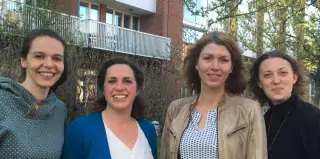
The growth factor IGF-2 can prevent the death of human nerve cells in the incurable disease ALS, according to a study by researchers at Sweden´s Karolinska Institutet and the University of Milan in Italy. The study, which is published in the journal Scientific Reports, demonstrates that degeneration-resistant oculomotor neurons can be used as a tool to identify factors able to prevent the degeneration of vulnerable neurons caused by this deadly disease.
News
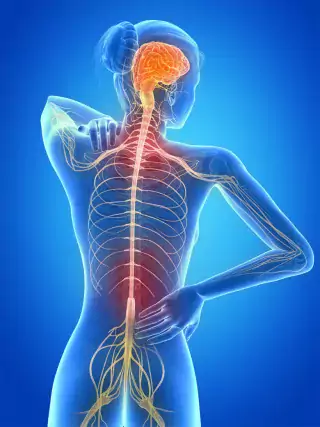
The spinal cord has its own system for sensing changes in pH, according to a study by researchers at Karolinska Institutet. The new findings, which are published in Current Biology, show that cells in the central canal of the spinal cord detect and regulate pH, if it deviates from normal levels. Such changes may in turn impair the function of the neural networks of the nervous system.
News
"Exposure Assessement - Challenges and Research Needs" is a new report written by a large number of IMM-researchers in different fields.
News

Broken-heart syndrome is linked to other diseases, but the risk factors for cardiovascular disease are normally lower in these patients. This according to a large registry study of Swedish patients made by Karolinska Institutet. The results, which are published in The Journal of American College of Cardiology, provide confirmation that the prognosis for a broken heart is comparable to that for myocardial infarction.
News
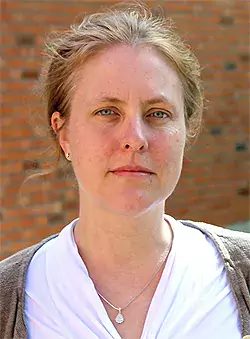
Susanne Nylén, in an interview about parasites in the stomach, on Vetenskapsradion Nyheter, Sveriges Radio, broadcast on 15 April 2016.
News
The European Research Council (ERC) has announced the winners of its prestigious ERC Advanced Grants 2015. Among a total of nine grantees from Swedish universities, four are researchers from Karolinska Institutet: Jonas Frisén, Thomas Helleday, Ole Kiehn and Klas Wiman.
News


